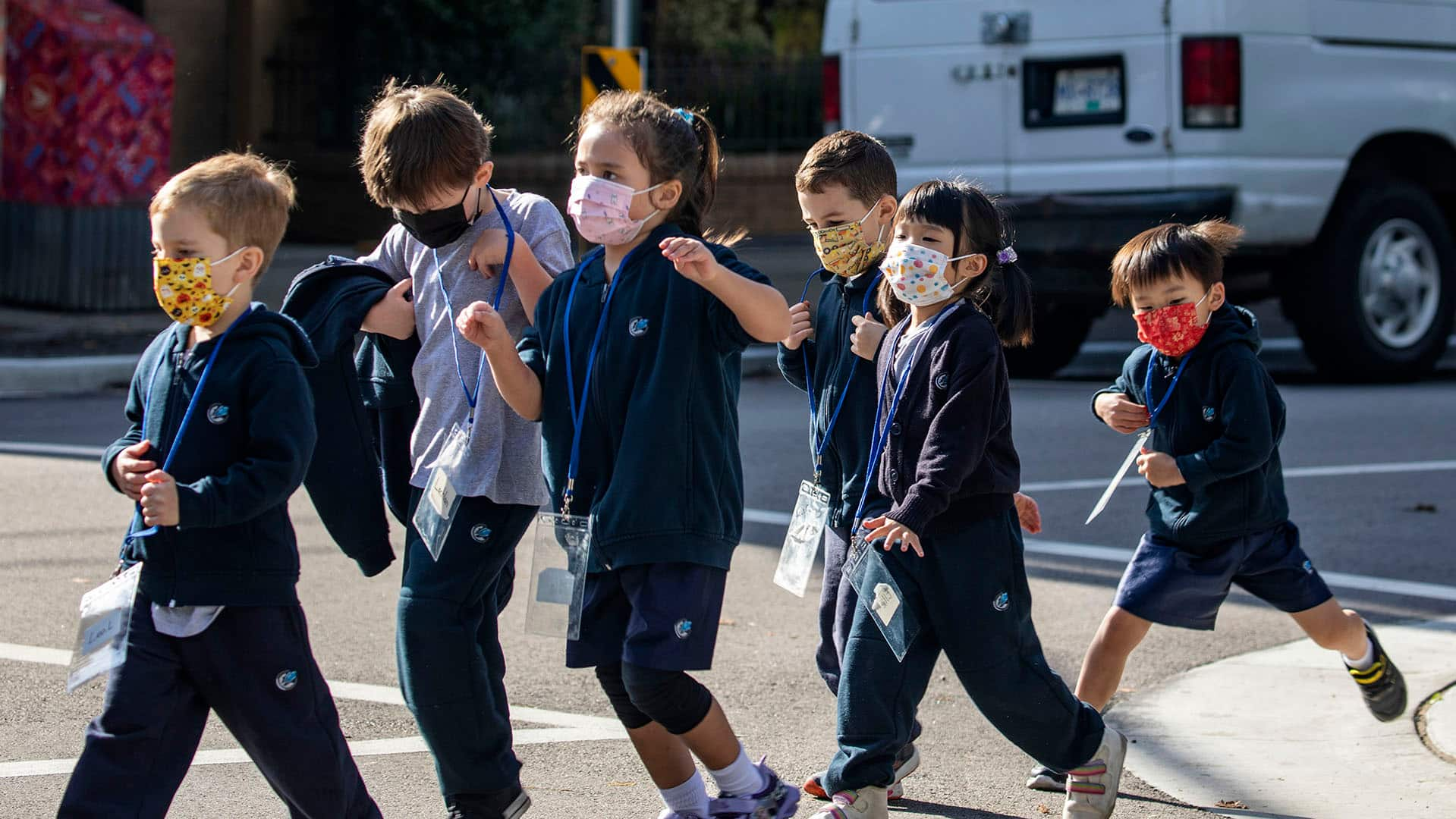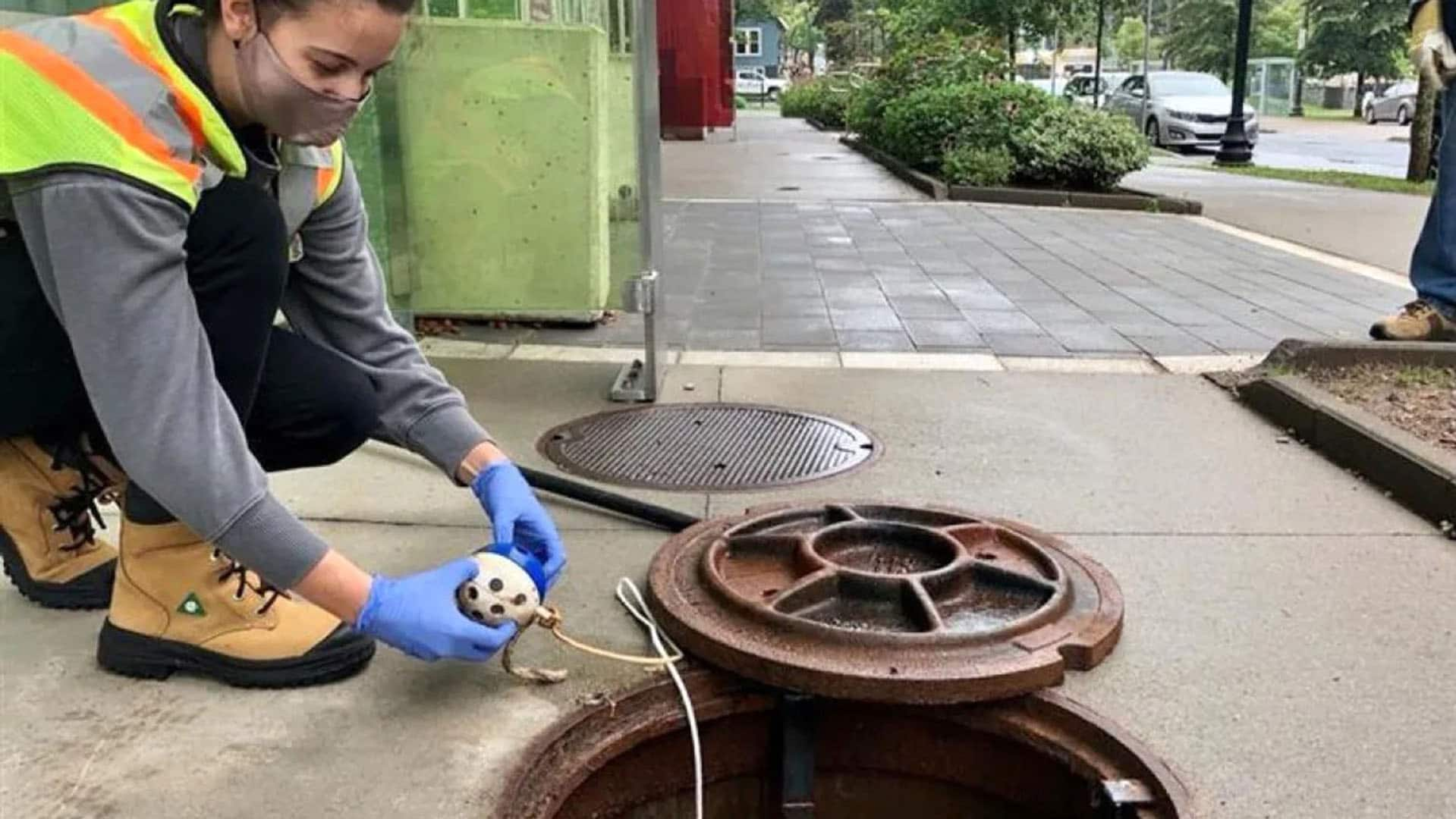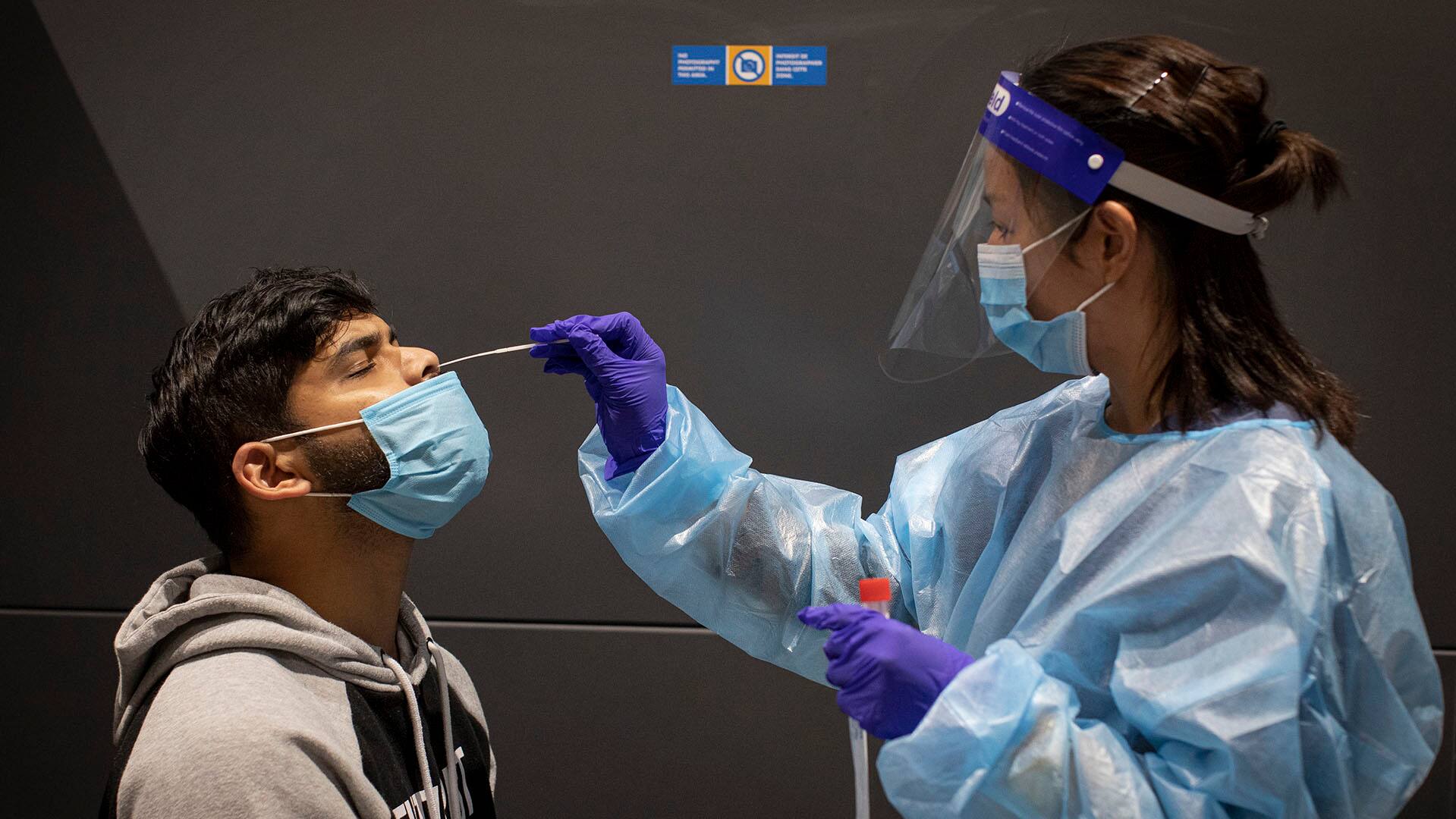The latest:
Top U.S. infectious disease expert Anthony Fauci warned on Wednesday against complacency about the Omicron variant of the coronavirus, saying the sheer number of cases could strain hospitals despite signs of lower severity.
The staggering pace of Omicron's spread has snarled life across the country, upending the restart of school after the holiday break, halting air travel, shuttering entertainment venues and throwing a wrench into back-to-office plans.
The rolling seven-day average number of new COVID-19 cases in the United States has been hitting new highs in recent days, according to the U.S. Centers for Disease Control and Prevention, and hospitalizations have risen sharply — though hospital numbers remain below the January 2021 highs.
"[Omicron] could still stress our hospital system because a certain proportion of a large volume of cases, no matter what, are going to be severe," Fauci told reporters at a White House briefing.
In hard-hit Ohio, Gov. Mike DeWine announced new or expanded testing sites in nine cities to steer test-seekers away from ERs. About 300 National Guard members are being sent to help out at those centres.
In Connecticut, many ER patients are in beds in hallways, and nurses are often working double shifts because of staffing shortages, said Sherri Dayton, a nurse at the Backus Plainfield Emergency Care Center. Many emergency rooms have hours-long wait times, she said.
"We are drowning. We are exhausted," Dayton said.
Other states are also feeling the strain of rising hospitalizations. Maryland is under a 30-day state of emergency as hospitalizations reached a new pandemic high on Tuesday. In a statement announcing the change, Gov. Larry Hogan's office said 1,000 members of the Maryland National Guard will be mobilized to help health workers.
"The newest projections show that COVID-19 hospitalizations could reach more than 5,000, which is more than 250 per cent higher than the previous peak," the statement said.
Read the order: https://t.co/QPEWF3U0jJ—@GovLarryHogan
Delaware, Illinois, Ohio, Vermont and Washington, D.C., have all reported record numbers of hospitalized COVID patients in recent days.
School concerns
Omicron's rapid spread has forced many companies and school officials to reconsider plans for returning to work and classes.
While most public school districts nationwide opted to reopen this week after the holidays, cities including Milwaukee, Atlanta and Detroit either implemented online instruction or delayed back-to-school due to staff shortages and Omicron concerns.
In Chicago, the nation's third-largest school district, officials cancelled classes on Wednesday amid a dispute with the teachers' union. The move came after the union voted late on Tuesday to return to remote learning and pushed for more rigorous safety protocols, including testing and mandatory vaccinations for students.

Chicago officials, including Mayor Lori Lightfoot, have been pressing to keep classrooms open, citing low hospitalization rates among the city's children and the adverse impact remote learning can have on minority and poor students in particular.
The Chicago Teachers Union has urged its members to stay out of the classroom and work remotely through Jan. 18, or return sooner if the city reached minimum health-safety thresholds set last year as a condition for in-person learning.
-From Reuters, The Associated Press and CBC News, last updated at 7:30 a.m. ET
What's happening across Canada

With testing capacity strained, experts say true case counts are likely far higher than reported. Hospitalization data at the regional level is also evolving, with several provinces saying they plan to report figures that separate the number of people in hospital because of COVID-19 from those in hospital for another medical issue, who also test positive for COVID-19.
For more information on what is happening in your community — including details on health systems, test positivity rates and local restrictions — click through to the regional coverage below.
In Atlantic Canada, the premier in Nova Scotia on Wednesday announced that students in the province — who were already facing a delayed return to school — would begin the new year with a week of online learning. The province on Wednesday said there were 45 people in hospital with admissions related to COVID-19, with 842 additional cases recorded in the government's tracking system.
New Brunswick health officials on Wednesday reported three additional COVID-19-related deaths and said 59 people were in hospital. The update came as the province reported 779 additional lab-confirmed cases.
"The rate of people hospitalized and in ICU continues to most greatly impact people who are unvaccinated," a statement released alongside the data said.
In Prince Edward Island, the number of people in hospital being treated for COVID-19 held steady at three, officials reported Wednesday. The island, which has not seen any COVID-19 deaths to date, reported 222 additional cases.
Newfoundland and Labrador on Wednesday said the number of people in hospital with COVID-19 stood at three, with 479 additional cases recorded. The province is working to ramp up its booster efforts, as the head of a major union of nurses called for more to be done to prioritize health-care workers.
Across the North, two top health officials in the Northwest Territories — Chief Public Health Officer Dr. Kami Kandola and medical director Dr. AnneMarie Pegg — are set to take questions from the public on Trailbreaker at 7:10 a.m. local time.
In Central Canada, Quebec's education minister said that students will return to in-person learning, as planned, on Jan. 17, even as the province struggles with Omicron. Health officials on Wednesday reported 1,750 hospitalizations and 39 additional deaths. The province saw 14,486 additional cases, with a test positivity rate of 28.1 per cent.
Many students in Ontario logged on to virtual classrooms as a new school term began on Wednesday, triggering renewed frustration for some families who said their children have a tough time with remote learning. The shift came as health officials on Wednesday said 2,081 patients were hospitalized. The province reported 14 additional deaths, 11,582 additional cases and a test positivity rate of 28.1 per cent.
In the Prairie provinces, the government in Manitoba is changing its COVID-19 testing process amid rising case numbers and a backlog of tests. Health officials say most people going to provincial testing sites will now be given rapid antigen tests to take home instead of a lab test on-site. The province on Wednesday reported 252 hospitalizations and 10 additional deaths since last Friday. The province reported 1,790 additional cases.
Saskatchewan health officials on Wednesday reported 106 hospitalizations, with no new deaths. The province reported 537 additional cases.
In Alberta, Education Minister Adriana LaGrange says grade school students will go back to classrooms on Jan. 10 as planned with more medical masks and COVID-19 rapid test kits. The update came as the number of people hospitalized rose to 470. The province, which reported 11 additional deaths on Wednesday, had 4,752 additional cases with a test positivity rate of 36.9 per cent.
In British Columbia, health officials said on Wednesday the number of hospitalizations from COVID-19 has risen to 317 as the province deals with the Omicron variant. The province had no additional deaths to report and 3,798 additional cases.
-From The Canadian Press and CBC News, last updated at 7:50 a.m. ET
What's happening around the world

As of early Thursday morning, more than 297.9 million cases of COVID-19 had been reported worldwide, according to Johns Hopkins University's coronavirus tracing tool. The reported global death toll stood at more than 5.4 million.
The head of the Centers for Disease Control in Africa said on Thursday that he was encouraged by the way that South Africa had handled its latest COVID-19 infection wave, adding that severe lockdowns were no longer a tool to contain the coronavirus.
"We are very encouraged with what we saw in South Africa in this period," John Nkengasong, director of the Africa Centres for Disease Control and Prevention (Africa CDC), told a news conference.
"The period where we are using severe lockdowns as a tool is over. We should actually be looking at how we use public health and social measures more carefully, and in a balanced way, as the vaccination increases."
In the Americas, Brazil's Health Ministry said it will go ahead with the voluntary vaccination of children aged five to 11 against COVID-19 and dropped plans to require a doctor's prescription.
In the Asia-Pacific region, Japanese Foreign Minister Yoshimasa Hayashi has asked that the U.S. military in Japan stay inside its bases to prevent the further spread of COVID-19. Japan's prime minister said he backs Hayashi's request and has decided to tighten anti-virus measures in Okinawa and Yamaguchi, where U.S. bases are located.
Thailand, meanwhile, has raised its COVID-19 alert level following rising infections.
In the Middle East, Israel changed its quarantine and testing policy in an effort to ensure continued protection for vulnerable populations from a surge in infections.
In Europe, Italy made COVID-19 vaccination mandatory for people from the age of 50.
-From Reuters and The Associated Press, last updated at 7:50 a.m. ET

















